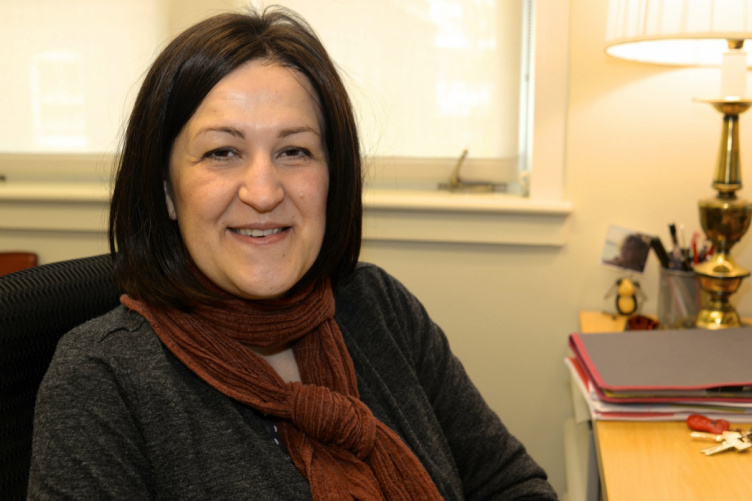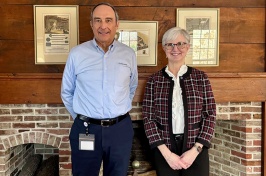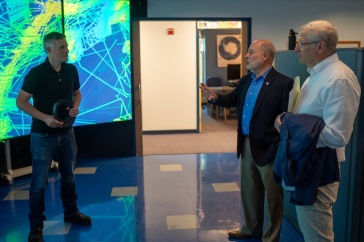
UNH physicist Patricia Solvignon has received a prestigious Early Career Research Program grant from the U.S. Department of Energy. Solvignon, an assistant professor of physics, is one of just 44 scientists from across the nation and the third from UNH to receive the award, which is designed to bolster the nation’s scientific workforce by providing support to exceptional researchers during the crucial early career years, when many scientists do their most formative work.
The award will support Solvignon’s inquiry into the nuclear force that holds the nucleus of an atom together, a problem that has stymied physicists for decades.
“It’s something we should have figured out a long time ago,” says Solvignon. “We understand most of it, but there are still pieces of the puzzle missing.”
Solvignon’s area of study is the special configuration of protons and neutrons called short-range correlations. Inside the nucleus of an atom, protons and neutrons are constantly on the move, she explains. Short-range correlations occur when they come so close to each other that they overlap. “Then they want to separate as quickly as possible,” she says. “If you go in with an electron probe and ‘tickle’ one of these neutrons or protons in close configuration, then they’re going to separate very quickly.”
That’s the basis of the several experiments Solvignon will conduct using the Continuous Electron Beam Accelerator Facility (CEBAF) at the Thomas Jefferson National Accelerator Laboratory in Virginia, where she holds a “bridge” appointment and worked as a staff scientist for five years before joining the UNH faculty in 2013. The DOE award, $150,000 per year for five years, will provide funding for two Ph.D. students to assist with this work.
“Having Ph.D. students helping with these experiments will make the research come much faster. It’s really a great advantage,” Solvignon says. “And for the physics I want to study, Jefferson Lab is the best place to do it.”
The Early Career Research Program award almost didn’t come to pass for Solvignon: Eight months pregnant with her second daughter when the application was due, she was so exhausted she nearly didn’t apply.
“It was great news,” she says of the award that she hopes will move the field of nuclear physics forward.
“The nuclear force is so basic — it’s been 100 years that we’ve known it exists — but we still have to discover more,” she says. “It’s just curiosity — you want to know how things work. That’s what’s so appealing.”
Read about Kai Germaschewski and Xiaowei Teng, UNH’s two other winners of the DOE’s Early Career Research Program award.
-
Written By:
Beth Potier | UNH Marketing | beth.potier@unh.edu | 2-1566

















































